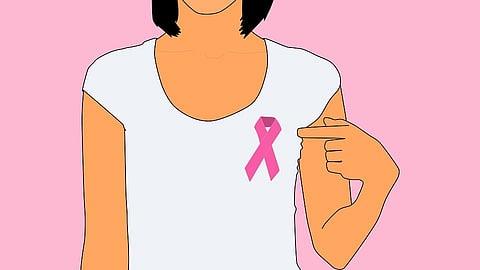A large retrospective study conducted by physician researchers from Roswell Park Comprehensive Cancer Center reports benefits of chemotherapy for many patients with early-stage breast cancer with rare variant histology, or tumor anatomy. These findings will be presented by first author Arya Mariam Roy, MBBS, during the American Association for Cancer Research (AACR) annual meeting, continuing through April 19 in Orlando, Florida.
“The benefit of chemotherapy in the management of rare histological variants of breast cancer, such as mucinous, medullary, cribriform and papillary, is unclear in the current guidelines,” notes Dr. Roy, a Roswell Park hematology/oncology fellow. “Therefore, we queried the National Cancer Institute’s Surveillance, Epidemiology, and End Results (SEER) database from 2010-2018 for stage 1, 2 and 3 hormone-receptor-positive HER2-negative breast cancer patients who presented with these rare histological variants and compared the clinical benefits of chemotherapy in patients who received it versus those who did not.”
Alongside study co-lead author Shipra Gandhi, MD, Assistant Professor of Oncology at Roswell Park, and colleagues, Dr. Roy examined overall survival and disease-specific survival in this patient population. Patients were assigned into chemotherapy-positive and chemotherapy-negative cohorts based on whether or not they received adjuvant chemotherapy.
Among 11,745 patients with a mucinous histology, 94 percent were hormone-receptor-positive HER2 negative. Among those individuals, 8.5 percent underwent chemotherapy and 91.5 percent did not. Data showed that the 5-year overall survival rate among all disease stages was higher for those who underwent chemotherapy compared with those who did not. The researchers observed a chemotherapy benefit in 5-year disease-specific survival only among patients with stage 3 breast cancer.


